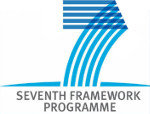From degree-correlated to payoff-correlated activity for an optimal resolution of social dilemmas
Aleta, A. (Universidad de Zaragoza) ; Meloni, S. ; Perc, M. ; Moreno, Y. (Universidad de Zaragoza)
Resumen: An active participation of players in evolutionary games depends on several factors, ranging from personal stakes to the properties of the interaction network. Diverse activity patterns thus have to be taken into account when studying the evolution of cooperation in social dilemmas. Here we study the weak prisoner''s dilemma game, where the activity of each player is determined in a probabilistic manner either by its degree or by its payoff. While degree-correlated activity introduces cascading failures of cooperation that are particularly severe on scale-free networks with frequently inactive hubs, payoff-correlated activity provides a more nuanced activity profile, which ultimately hinders systemic breakdowns of cooperation. To determine optimal conditions for the evolution of cooperation, we introduce an exponential decay to payoff-correlated activity that determines how fast the activity of a player returns to its default state. We show that there exists an intermediate decay rate at which the resolution of the social dilemma is optimal. This can be explained by the emerging activity patterns of players, where the inactivity of hubs is compensated effectively by the increased activity of average-degree players, who through their collective influence in the network sustain a higher level of cooperation. The sudden drops in the fraction of cooperators observed with degree-correlated activity therefore vanish, and so does the need for the lengthy spatiotemporal reorganization of compact cooperative clusters. The absence of such asymmetric dynamic instabilities thus leads to an optimal resolution of social dilemmas, especially when the conditions for the evolution of cooperation are strongly adverse.
Idioma: Inglés
DOI: 10.1103/PhysRevE.94.062315
Año: 2016
Publicado en: Physical Review E 94, 6 (2016), 062315 [8 pp.]
ISSN: 2470-0045
Factor impacto JCR: 2.366 (2016)
Categ. JCR: PHYSICS, MATHEMATICAL rank: 6 / 55 = 0.109 (2016) - Q1 - T1
Categ. JCR: PHYSICS, FLUIDS & PLASMAS rank: 10 / 30 = 0.333 (2016) - Q2 - T2
Factor impacto SCIMAGO: 1.27 - Condensed Matter Physics (Q1) - Statistics and Probability (Q1) - Statistical and Nonlinear Physics (Q1)
Financiación: info:eu-repo/grantAgreement/EC/FP7/317532/EU/Foundational Research on MULTIlevel comPLEX networks and systems/MULTIPLEX
Financiación: info:eu-repo/grantAgreement/ES/MINECO/FIS2014-55867-P
Tipo y forma: Artículo (Versión definitiva)
Área (Departamento): Área Física Teórica (Dpto. Física Teórica)
 Debe reconocer adecuadamente la autoría, proporcionar un enlace a la licencia e indicar si se han realizado cambios. Puede hacerlo de cualquier manera razonable, pero no de una manera que sugiera que tiene el apoyo del licenciador o lo recibe por el uso que hace.
Debe reconocer adecuadamente la autoría, proporcionar un enlace a la licencia e indicar si se han realizado cambios. Puede hacerlo de cualquier manera razonable, pero no de una manera que sugiera que tiene el apoyo del licenciador o lo recibe por el uso que hace.
Exportado de SIDERAL (2025-11-13-15:00:35)
Visitas y descargas
Idioma: Inglés
DOI: 10.1103/PhysRevE.94.062315
Año: 2016
Publicado en: Physical Review E 94, 6 (2016), 062315 [8 pp.]
ISSN: 2470-0045
Factor impacto JCR: 2.366 (2016)
Categ. JCR: PHYSICS, MATHEMATICAL rank: 6 / 55 = 0.109 (2016) - Q1 - T1
Categ. JCR: PHYSICS, FLUIDS & PLASMAS rank: 10 / 30 = 0.333 (2016) - Q2 - T2
Factor impacto SCIMAGO: 1.27 - Condensed Matter Physics (Q1) - Statistics and Probability (Q1) - Statistical and Nonlinear Physics (Q1)
Financiación: info:eu-repo/grantAgreement/EC/FP7/317532/EU/Foundational Research on MULTIlevel comPLEX networks and systems/MULTIPLEX
Financiación: info:eu-repo/grantAgreement/ES/MINECO/FIS2014-55867-P
Tipo y forma: Artículo (Versión definitiva)
Área (Departamento): Área Física Teórica (Dpto. Física Teórica)
Exportado de SIDERAL (2025-11-13-15:00:35)
Enlace permanente:
Visitas y descargas
Este artículo se encuentra en las siguientes colecciones:
Artículos > Artículos por área > Física Teórica
Registro creado el 2017-02-17, última modificación el 2025-11-13
